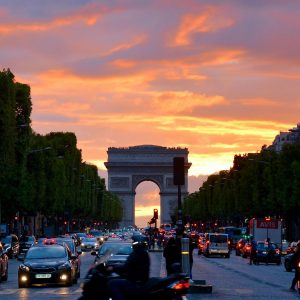6 years after Khan Sheikhoun chemical attack in Syria, perpetrators still at large
IDLIB, Syria (AA) – On April 4, 2017, more than 100 Syrian civilians were killed in a chemical attack by the Syrian Assad regime forces on the town of Khan Sheikhoun in the northwestern Idlib province.
With Iranian and Russian support, the regime of Bashar al-Assad continued its air and ground assault until it seized control of the town in May 2017.
Six years since the chemical attack, civilians displaced by regime attacks on Khan Sheikhoun still live in camps.
Alaa Hammoud, a Syrian activist and former resident of Khan Sheikhoun, recalls the grisly chemical attack on his town.
“We broke down doors in a desperate attempt to save civilians following the chemical attack,” Hammoud shared.
“Most of the families we sought to save were dead,” he said.
Hammoud still can’t forget the scenes of civilians killed and maimed by the chemical attack on the town.
“I still remember very well civilians suffocating to death while trying to crawl out of their homes after the attack,” the activist said.
“Despite the pain, the residents of Khan Sheikhoun still hope they could return to their homes one day.”
Perpetrators at large
Khan Sheikhoun, south of Idlib province, fell to armed groups opposed to the Syrian regime in 2014.
On April 4, 2017, Syrian regime forces attacked the town with chemical weapons, killing at least 100 people, mostly children.
Following the attack, the US launched a missile attack on April 7 on Syria’s Shayrat Airbase, from which the chemical attack on Khan Sheikhoun had been staged, in a limited reaction to violations committed by the Assad regime.
In a meeting held in the Kazakh capital, Astana, on May 4-5, 2017, Türkiye, Russia and Iran declared Idlib province, including Khan Sheikhoun, a de-escalation zone in northwestern Syria.
Despite the declaration, Khan Sheikhoun remained the target of frequent attacks by the Syrian regime and its allies.
On October 27, 2017, the Joint Investigation Mission (JIM) of the United Nations and the Organization for the Prohibition of Chemical Weapons (OPCW) confirmed the regime’s use of chemical weapons in Khan Sheikhoun.
Following the Khan Sheikhoun massacre, the Syrian regime carried out at least 14 more chemical attacks, including one on the city of Douma on April 7, 2018, which left 78 civilians dead.
The Khan Sheikhoun massacre is considered a war crime under international law, but those responsible for the massacre cannot be tried before the International Criminal Court (ICC) due to the veto power exercised by Russia, Assad’s foremost ally.












